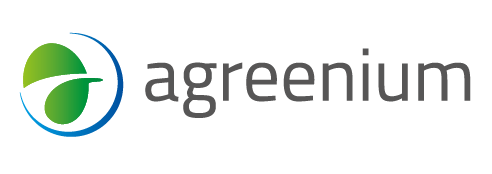The Agreen U project
Changes in digital technologies and the globalisation of higher education and research are converging on rapid development of the global digital training on offer.
Objective
The aim of Agreen U is to give access to all the digital training on offer from the French agricultural and veterinary sciences research and education system via a single portal.
This poses two challenges:
- facilitate access to scientific, technical and vocational training of all learners who have no possibility of learning in formal education systems (distance, cost, etc.)
- help to construct a skills ecosystem in France and in all countries which seek to support the development of sustainable agriculture to increase food security.
Editorial policy
Agreen U features demanding guidelines:
- It guarantees the scientific quality of knowledge contents found in its various media, given the educational responsibility entrusted to researchers, lecturers-researchers or engineers who are Agreenium members and their scientific validation, mainly through publishing in international scientific journals;
- It respects the political, religious and union neutrality through the commitment of authors to be independent when faced with various lobbies;
- It offers a free scientific extension service by contributing to the scientific education public service mission;
- It offers a set of training support services (documentary resources, catch-up tools) to assist the general public with its learning, free of charge under MOOC and chargeable when the training requires close one-to-one support or a certified assessment of the knowledge and skills acquired.
Audiences and theme scope
Agreen U aims to satisfy the need for many national and international audiences to access to agribioscience learning: French and overseas students, people in employment seeking to build up their capacities, the general public interested in the relations between science and society, etc.
As part of the global Agreenium project, Agreen U contributes to its ambition to share knowledge and innovations, to take up the major challenges of protection of natural resources, worldwide food security and sustainable alternatives to using fossil carbon.
Its purpose is to cover all skill areas of Agreenium members qualified as “agribioscience” and which include life sciences and human and social sciences.
Publications
Agreen U offers a range of products intended to inform and/or train these different audiences: scientific and technical culture products, prerequisite and catch-up tools in scientific disciplines, MOOC and training modules which may or may not be grouped into degree courses.
Online training services are also on offer: guidance, documentary resources (free and chargeable e-books, videos, access to member databases), miscellaneous information (news, events, etc.).
The aim is to give French higher agricultural and veterinary education the same international profile as research, by making the agribiosciences Digital University one of the global references for the topic.
Authors and partners
The authors are basically lecturers-researchers, researchers or engineers who are members of Agreenium. They can be associated with academic partners, research bodies or professional partners in both France and abroad, to encourage joint design of resources. They strive constantly for the diversity of use of resources produced.
Editorial policy gives priority to joint design of digital resources and joint promotion by partners in distributing resources, without, for all that, excluding resources produced by individual staff of Agreenium members when they respond to uses which can be shared between members or which help to boost the appeal of French higher agricultural and veterinary education.
Editorial policy management
Editorial policy is monitored by the Institute's digital correspondents group, which meets as the Digital University's Editorial Committee every quarter. The Editorial Committee supervises the work of themed commissions (agroecology, agri-food, animal health, etc.) which deal with new digital training product projects and the incorporation of digital resources which have been produced outside the pilot projects within the Digital University.
As Agreenium is a group of specialist agribioscience institutions organised into networks and themed communities, the action of the Editorial Committee is guided by three principles in ensuring the quality of products proposed:
- confidence, as the recognised agribioscience expertise of authors guarantees the scientific quality of contents;
- responsibility, as the coordinator (institution to which the responsible lecturer or researcher is attached) and its team of authors must ensure the editorial quality;
- commitment to on-going improvement; as the quality of uses is a common reference, the assessment of the training by the learners and the educational team must ensure the minimum product quality level.
The educational and technical quality assessment, where this is still necessary to avoid producing digital resources of insufficient quality, is theoretically simplified by a subsequent assessment by the users and the commitment to improve the resource by the authors, in order to encourage the development and continuance of uses.





